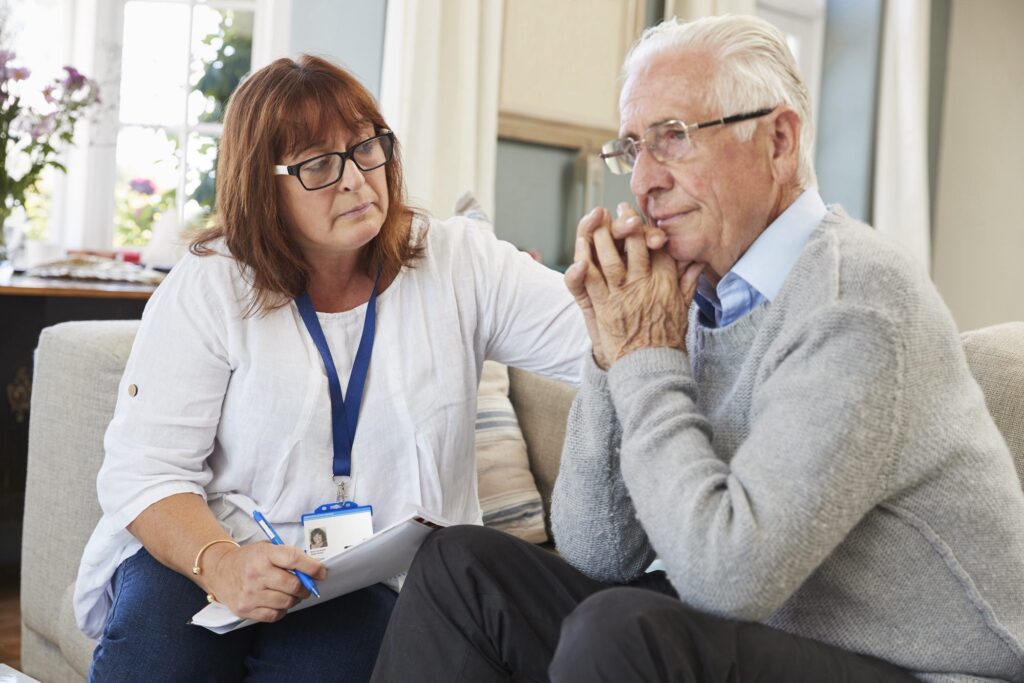Before cancer treatment starts, it is important to have an opportunity to talk through your general health and wellbeing with your cancer team.
Your team needs to know about any co-existing health conditions, whether you have had any falls recently, if you are losing or gaining weight, or if your memory is changing. These issues can then be taken into consideration by your cancer care team when they make treatment decisions with you.
Research studies show that older people can be at risk of having too much or not enough cancer treatment. A check of your health prior to making treatment decisions can assist in choosing treatments that are more appropriate for you.

Older adults who helped develop the Older and Wiser resources told us that they did not tell their cancer doctors about co – existing health conditions, or that the cancer doctors did not ask about these. Many people felt that their appointments focused only on the cancer.
“Being older, many of us do have co-morbidities as well as cancer but….. its all bundled together”
Dawn, older cancer patient
What the cancer team needs to find out
To be able to plan your care and treatment fully, your cancer team needs to know about:
- Your physical health including any chronic conditions
- All medications you are taking
(Remember to tell the cancer team about any complimentary therapies you are taking such as vitamins and herbal medicines)
- Your mobility, that is how you move around and how independent you are doing daily activities. This includes what you can do on your own and the things you need some help with.
(Tell the cancer team about any falls you have had – research shows that coping with treatment may be harder for people who have had recent falls).
- Your vision, hearing and dental health
- Your appetite, any weight loss or weight gain
- Your memory and any changes to your ability to think clearly
- Your emotional wellbeing, anxiety or depression
- Your social situation; do you live alone; do you have a network of support people around you?
This is Me tells your cancer team all about you
The This is Me resource helps you prepare for discussions with your cancer team. It can help make sure that the team has important information about you, that they need to help plan your care and treatment.
You can fill out the This is Me resource and take it with you when you go to your appointments. It can help you start a conversation with your doctors or nurses about your general health and wellbeing and the things that matter to you.
You may want to update the resource at different times during your treatment as things change for you, using it as a prompt or reminder of things you want to let doctors or nurses know.
This is Me might also be helpful if you are going to a new GP or changing your GP.
This is Me helps inform the cancer team about your health and wellbeing. It says to the cancer team: These are important things I want you to know about me!
Your GP is an important contact
Your GP is an important contact for you and your cancer team.
If you have a longstanding relationship with your GP, he or she may know you well and understand your circumstances, and the health conditions that you have.
If you do not have a longstanding GP some of the details about your health conditions, and how these have been treated may not be recorded, so it is even more important that you share as much information as possible with your cancer team.
More information about the importance of a good GP can be found here: Finding the right GP.
The more your cancer team knows about your health, your social situation and your preferences, the more able you will all be able to make decisions about treatment that best meet your needs and wishes.

A thorough check of your health helps identify any additional help or support you may need. Your cancer team and GP can help organise any additional support you may need, or you may want to look at different sections of this WeCan site to find support and information relevant to you.
Cancer treatments affect everyone differently. Even though we hope that things will go as smoothly as possible, it’s always worth being prepared for the possibility that things may not go as planned. Knowing what support is available and how to access it , even if you don’t think you will need it, can help you feel more in control or less anxious about how you will cope should you need extra help.
Aged Care Assessment
Some older Australians may already have had an Aged Care Assessment of their health, lifestyle, daily activities and support needs, at the time of a cancer diagnosis.
Aged Care Assessment is undertaken to help older adults access supports and services around the house, or to help with practicalities about moving to a residential aged care home.
My Aged Care is the Australian Government provider of government funded services for older people either in their own homes or in aged care homes.

